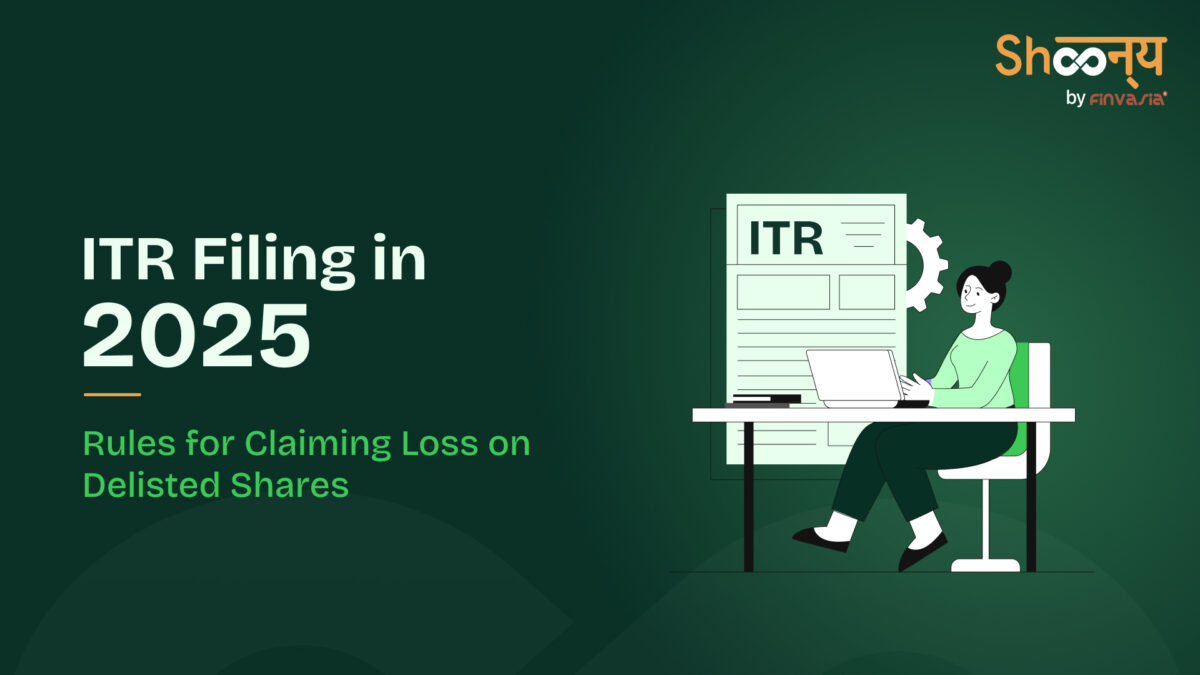ITR Filing 2025: How to Claim Capital Loss on Delisted Shares

If you hold shares of a company that has been delisted, you may be wondering if you can claim a capital loss on them during ITR filing. You are not the one; many investors face this problem every year. Their shares get stuck in a demat account, and there is no way to sell. The tax rules here can feel tricky to understand. The Income Tax Act allows losses only when there is a “transfer” of the asset, which means selling or extinguishment of rights.
In this blog, we break down the steps to claim capital loss on delisted shares and their treatment under tax laws. Also, what options do you have to claim it in your Income Tax Return?
How Tax Rules Treat Delisted Shares
Under incomnsidered “transferred.” Usually, this happens when you sell it, but the law also counts it as a transfer if your ownership rights are extinguished.
Now, here’s the tricky part: ns when you sell it, but the law also counts it as a transfer if your ownership rights are extinguished.
Now, here’s the tricky part:
- If your shares are simply delisted but still visible in your demat account, they are not treated as transferred. However, you cannot claim them as a loss in your ITR, even though you cannot sell them in the market anymore.
- On the other hand, if the company has gone into liquidation or NCLT (Insolvency proceedings). The shares have been formally extinguished; they disappear from your demat account. In that case, you can claim the capital loss in the year of extinguishment.
Scenarios for Claiming Loss on Delisted Shares
There are several situations investors may face with delisted shares.
Let’s break them down:
- Delisted Shares in your Demat Account: If the delisted shares are still showing in your demat, you cannot claim the loss because they have not been “transferred” or extinguished under tax laws.
- Liquidation or the NCLT Declared Insolvent: If the company is under liquidation and the NCLT authorises the extinguishment of shares, they will disappear from your demat account. At this point, you can claim the loss in your ITR.
- Off-Market Transfer Option
Suppose you want to claim the loss while the shares are still in your account. You can transfer them to a family member through an off-market deal at a nominal price (like ₹0.01). Hence, it will make it a valid transfer, allowing you to book the loss. - Long-Term and Short-Term Loss
- If you held the shares for > 24 months before extinguishment/transfer, the loss is treated as long-term and can only be set off against long-term gains.
- If held for < 24 months, it is considered short-term and can be set off against both short- and long-term gains.
Source: MoneyControl
Disclaimer: Investments in the securities market are subject to market risks; read all the related documents carefully before investing.








